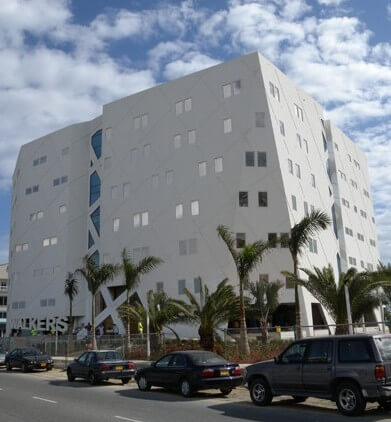
Could you, would you choose to escape the cubicle?
Around 60% of people in the UK live within 15 miles of where they were born. At the same time, we see a radical and continuing growth in inequality, one of the results of which is that housing affordability is at an all-time low, such that buying one’s own home now feels like a distant dream for a large percentage of the younger population.
One answer is to move away to a part of the country (or another country entirely) where the gap between what you earn and what it costs you to live is less, yet it seems few are still open to this possibility or feel they can do it. I absolutely understand, the draw of staying close to home, family and community can be strong. That said, the economic and other possibilities (clean air, good schools, even better and more affordable healthcare systems) could be very much worth considering for more and more people.
This week I read an interesting piece in the New Yorker by Cal Newport called “The Great Cubicle Escape“, where he highlighted one couple’s story of moving out of New York to a much less expensive and simpler way of living in a rural area.
The simplicity of solving the cost of living problem by either “earning more or spending less” is simple to understand (if not always to achieve), but what has clearly changed in the age of the internet is the growing ability to do so many knowledge-based jobs from anywhere. What then has made this feel more and more attainable during the pandemic (and we now hear the phrase: “great resignation”) is that more and more businesses are accepting of people living a #WFA (Work from Anywhere) life as they find it more and more difficult to hire and to retain staff.
A critical element of Cal Newport’s case study is that the couple in question had taken several years to build skills and experience which then meant that they could #WFA, so they could take advantage of these possibilities. Their story was about far more than simply moving somewhere less expensive, their simpler and more relaxed life was made possible by being able to leverage their skills by being paid to #WFA.
This feels like a critical piece and one that more people could pay close awareness to as they focus on developing their careers, particularly in their 20s and 30s, as this can then give them far more freedom of choice for the rest of their lives, and particularly should they have a family and therefore need to provide for that in their 40s and 50s.
As I write this, I can think of friends of different ages and in various professions who, if they choose, could consciously focus on developing skills and experience that would enable them to move away from where they live and enjoy a far higher quality of life with far less work pressure, not by retiring ultra-early (for extreme versions of this, look up “FIRE“), but by a combination of moving to a lower-cost place to live while still doing similar work but at a lower level of intensity than before (eg taking less money for fewer hours).
To some extent, at the age of 56, I am one person doing this. With grown children I choose to live a simpler life and my work can be done from anywhere, so I combine these by choosing where I wish to live (and I am a “country boy” at heart, so it is not in a big city!).
If your work is in or around London, as an example, you could consider the options that could be open to you if your work would allow you to only come “into town” infrequently. What would you need to do now or in the next few years to enable that?
Further afield, I think of many friends in Cayman who work in relatively high paid yet high-pressure roles yet, with Cayman being one of the most expensive places in the world to live, find that almost all of the money they earn goes into daily living. This “running to stand still” lifestyle could be radically changed by moving away, assuming they have a job that is suitable for #WFA.
In closing, it feels sad that when I think of friends in Cayman, many of them are Caymanian born and bred, yet the cost of living does leave more and more of them with an increasingly clear choice of working really hard until as late an age as they can, else moving away from Cayman so that they can back off that high-pressure life early. It is a sad indictment of how our global economy and “developed” societies live that in order to “escape the cubicle” it feels like we will have to leave home, whether or not we want to.
